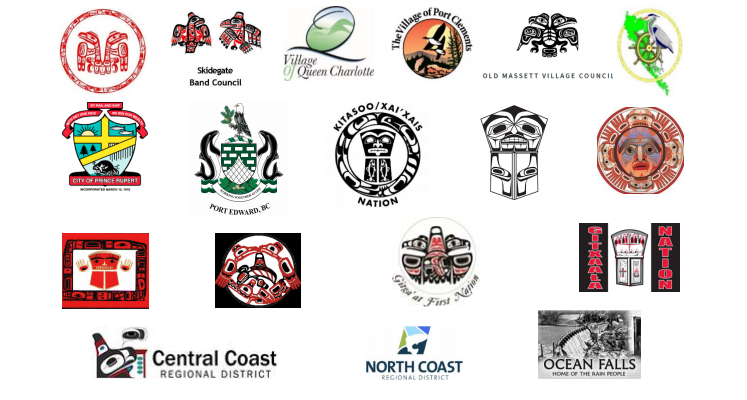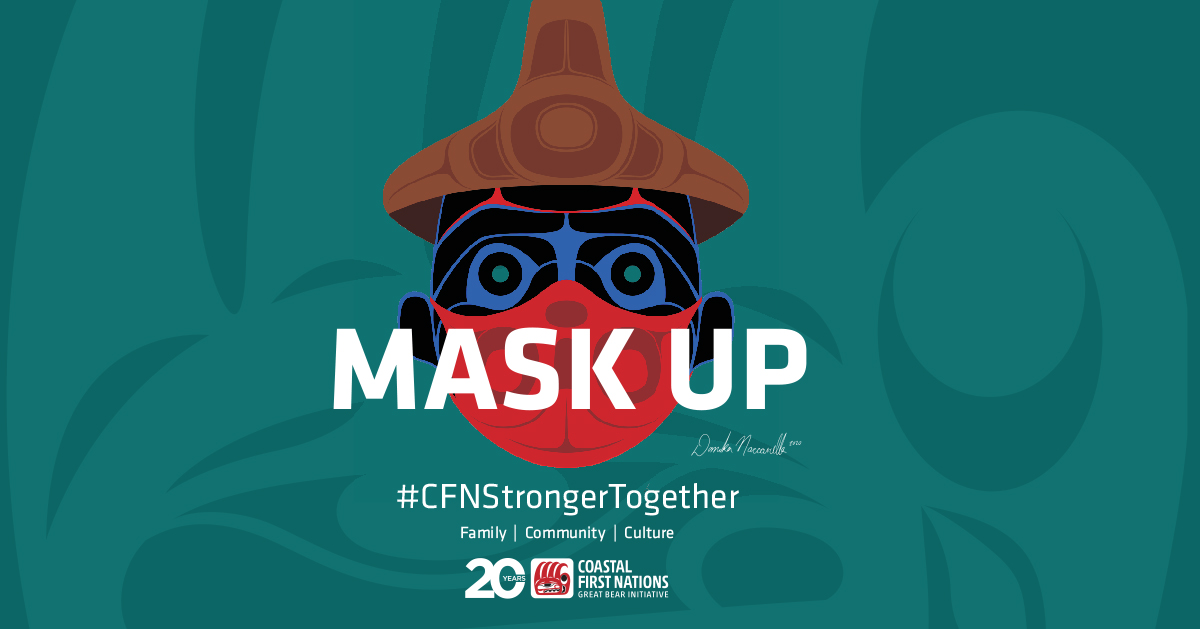Coastal First Nations chiefs and BC mayors are calling on Canada and British Columbia to support urgent travel restrictions to protect their communities from the COVID-19 virus.
In a letter sent to BC Premier John Horgan, federal Transportation Minister Marc Garneau and other officials on April 6, the leaders ask for immediate help to stop an influx of visitors to their communities. It was signed by ten nations from the North and Central Coast and Haida Gwaii, five municipalities and the North and Central Coast Regional Districts.
The community leaders say sports fishing, hunting and recreational activities are already increasing visitors to the region. They worry the tourism season will bring more. The letter asks government to enforce non-essential travel to communities and to authorize municipalities and regional districts to do the same.
“We’re working hard to keep COVID-19 out of our community, we’re quite worried about it,” says Nuxalk Chief Wally Weber, whose community set up a Highway 20 checkpoint to ask non-residents to stay away.
“Our hospital and grocery store can’t handle an influx of people,” Weber says. “Right now, we’re standing in lineups and we can’t get eggs or toilet paper.”
Coastal nations imposed emergency measures two weeks ago, allowing only members and essential service staff to enter communities. Heiltsuk councillor Jessie Housty says the Central Coast Regional District “observed what we were doing and developed their own emergency powers to support what the nations were putting in place.”
Housty says it’s disappointing that BC rescinded those measures last week and ordered municipalities to abide by one provincial state of emergency.
“To see the level of unity across nations, regional districts and municipalities is an amazing alignment you don’t see very often,” she says. “I find it very disheartening that the province is not part of the solution in this time of crisis.”
Recreational boaters continue to trickle in daily to Bella Bella to load up on food and fuel, she reports. This could have been avoided had local emergency measures not been rescinded. “We’ve been lobbying the Coast Guard to announce over their radio channels that small communities are not taking traffic.”
Now the Heiltsuk must rely on limited resources to get the word out. “It’s tough to enforce these measures while maintaining social distancing,” Housty says. “And it’s unfair that we have to think about it.”
In a separate letter to Fisheries and Oceans Canada, the Nuxalk have also asked the federal government to suspend all commercial and recreational fishing. Weber says his community cannot support an influx of fishermen: “That’s an extra three or four hundred people our community can’t handle. We have one ventilator for an adult and one for a child in a population of about 3,000 people.”
The federal government has not responded to the request.
“We have a constitutional right to protect our language but how do we do that?” Weber asks. “We only have three fluent Nuxalk-speaking elders. We need to protect them. We can’t protect them if the government ignores us by saying our checkpoint is illegal.”
On the Haida Nation website, President Gaagwiis Jason Alsop states that BC and Canada have a moral and social responsibility to restrict travel, “to help prevent the spread of COVID-19 and protect our few remaining fluent Haida language speakers and traditional knowledge holders.”
For helpful resources and support during this crisis, visit our COVID-19 page.


